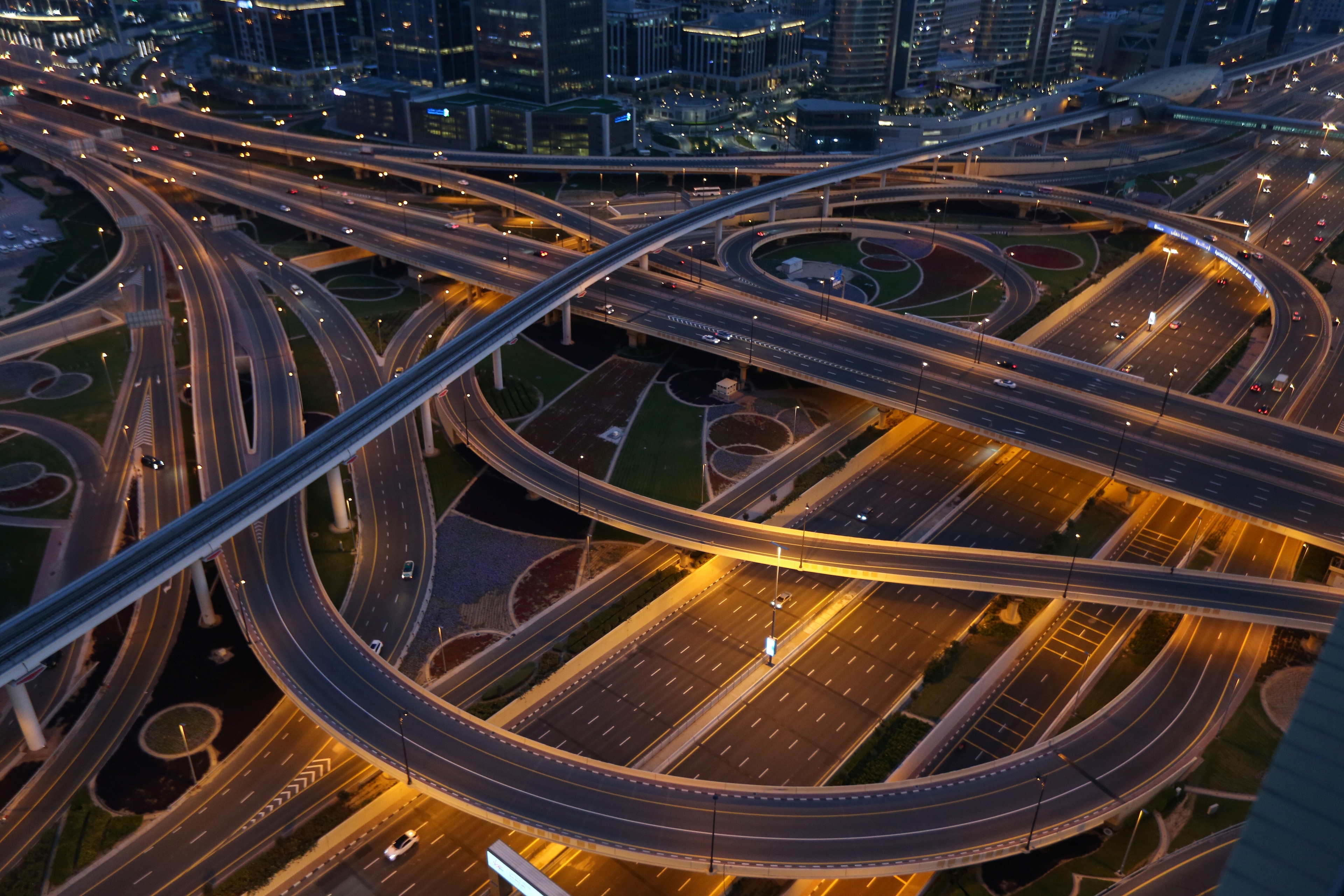Cities make progress on air quality, and other urban transformation stories you need to read

What you need to know this month about cities and urbanization.
Image: Unsplash/Dan Freeman
- This monthly round-up brings you some of the latest news on cities and urbanization.
- Top city and urbanization stories: Air quality improving in some cities; Cities' spending power falling; Heatwaves hit cities across the globe.
- For more on the World Economic Forum’s city-focused work, visit the Centre for Urban Transformation.
1. Air quality in cities improving – report
Air quality in C40 cities has significantly improved in the two decades from 2002 to 2022, according to a new report by the network of mayors leading on action to tackle the climate crisis.
More than a quarter of cities (27%) are now meeting stricter air quality targets, achieving lower levels of PM2.5 than the World Health Organization's (WHO) interim target of below 10 µg/m3 in 2022 – up from 11% of cities in 2002.
Cities in North America and Europe account for the majority of those with improved air quality – while Sydney was the only C40 city that met the WHO's healthy air quality standards in 2022.
PM2.5 levels in China's 13 C40 member cities have dropped by 44% between 2014 and 2022, with Beijing seeing the largest reduction in air pollution.
However, the Air quality status and trends in C40 cities report also finds that one in five cities worldwide still has "very unhealthy air quality".
The C40 cities have also joined a coalition calling for governments to align their national climate plans with the Paris Agreement target of limiting global warming to 1.5°C – ahead of a February 2025 deadline.
2. Cities' spending power diminishing - research
Analysis from World Data Lab finds large cities are still growing, but their share of total spending is shrinking.
In 2000, the top five cities accounted for 10% of global spending power. By 2040, this will drop to 5%, say Matthew Cooper, Vice-President of Data and Marco Fengler, Data Analyst.
This is because many small cities are emerging and growing faster, taking spending share from the megacities.
In 2024, the top 100 cities have a combined spending power of $15 trillion, equal to all other cities combined. By 2040, the top 100 cities will double their spending power, while the rest of cities will more than triple.
To invest in growth, the focus needs to go beyond the 100 cities and towards the top 1,000, with almost half situated in Asia.
How is the World Economic Forum fighting the climate crisis?
3. News in brief: Other top city and urbanization stories this month
Indian cities are turning into "heat traps" because of their unbalanced growth, which is destroying water bodies and increasing greenhouse gas emissions, Krishna S. Vatsa, a member of the National Disaster Management Authority, told Reuters. Above-normal temperatures were forecast in the northwest and central regions, including Delhi, throughout June, making it one of the longest heatwave spells.
It comes as more than 100 million people across the US were under heat warnings on 23 June, with a heat dome over cities including Baltimore and Philadelphia leading to forecasts of 38C temperatures.
Rome is getting thousands of new taxis after an 18-year wait, the mayor has announced, in a bid to ease transport for tourists. Mayor Roberto Gualtieri told Reuters his office would issue tenders for 1,000 new taxi licences and 2,000 new Uber permits in July.
China's new property support measures have increased sales in major cities, but smaller areas are still struggling. Official data showed new home prices in China fell at the fastest pace in almost 10 years in May.
Amazon's robotaxi unit, Zoox, announced plans to test its autonomous vehicles in the midwestern US cities of Austin, Texas, and Miami, Florida. Retrofitted Toyota Highlanders with human safety drivers will be deployed in specific areas near the business and entertainment districts of the two cities.
4. More on urban transformation on Agenda
The buildings and construction sector currently falls short of its goal to hit net zero by 2050. Operating carbon as a sole indicator of carbon emissions sector is not enough: while measuring embodied carbon is more complex, it is needed to limit global warming to below 1.5°C. The G20 Global Smart Cities Alliance has released a whole-life carbon assessment mandate model policy that serves as a guide for cities and businesses for achieving decarbonization goals.
Urbanization has rapidly accelerated, particularly in arid regions such as the Middle East where city populations have doubled since the 1960s. But as cities have expanded, they've become more susceptible to climate change, with concrete landscapes presenting environmental challenges. Two experts explain how creating nature-positive cities can foster good public health and help transform infrastructure industries for a better future.
Urban systems exist to serve the entire population and this includes the growing number of people with mobility challenges. Cities must invest holistically to meet today’s needs while enabling future systems to meet sustainability and accessibility standards. Designing and constructing accessible cities will create the urban transformation required for all citizens, write four experts.
More on Urban TransformationSee all
Jeff Merritt and Vivian Brady-Phillips
July 25, 2025
Muhammad Hassan Dajana and James Balzer
July 22, 2025
Olivia Nielsen
July 16, 2025
Luis Antonio Ramirez Garcia
July 14, 2025
Sam Markey, Basmah AlBuhairan, Muhammad Al-Humayed and Anu Devi
July 8, 2025




